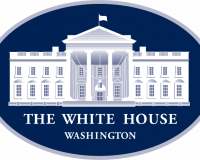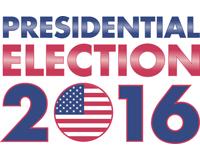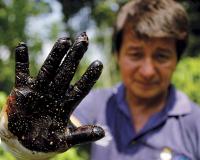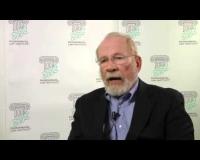
Vibrant Environment
Governance And Rule Of Law
All | Biodiversity | Climate Change and Sustainability | Environmental Justice | Governance and Rule of Law | Land Use and Natural Resources | Oceans and Coasts | Pollution Control

Can our machines become self-motivated environmental learners?
The environmental movement has always been challenged by machines—the internal combustion engine, steam-powered turbines, production devices of every type and size—mechanisms consuming resources and generating waste during the long chain of events required to produce products (which often ended up themselves as waste). Old machines had rudimentary feedback systems like governors, gyroscopes, and other servomechanisms. These systems rarely provided any control of environmental parameters, but they did have an important characteristic: they operated independent of human operators—a precursor of things to come.

For the past seven months, an effort has been underway to change the way we regulate biotechnology—an effort that involves the White House (driven by the Office of Science & Technology Policy and including CEQ, OMB, and the U.S. Trade Representative); three of the most important regulatory bodies in our government: EPA, FDA, and USDA; and the National Academies of Science, Engineering, and Medicine (NASEM). No regulatory modernization initiative in recent history has come close to this effort in terms of the level of government engagement and potential scope of impact.

On November 10, 2016—just two days after Election Day—there was another surprising turn of events: a federal district court judge in Oregon handed a long-shot victory to a group of young activists suing the federal government over its history of action and inaction regarding fossil fuels and climate change. Denying the defendants’ motions to dismiss in a thorough and groundbreaking opinion, Judge Ann Aiken found there was a sufficient legal basis for the plaintiffs to pursue their constitutional and common-law claims for the case to proceed to the next litigation stage. Now, in the waning days of the Obama Administration, the case is entering uncharted territory. On top of the unprecedented nature of the case itself, the uncertainty regarding the presidential transition extends to the course this case may take and to its importance going forward.

In 2015, the U.S. Department of Agriculture and Environmental Protection Agency announced an ambitious goal of reducing food waste in the United States by 50% by 2030. While the change in presidential administrations presents new obstacles for many federal environmental initiatives, reducing food waste continues to offer fertile ground for cooperation.

President-elect Donald Trump's environmental agenda to date has generally been focused on undoing certain specific Obama administration regulations, such as the Clean Power Plan (CPP) or the Waters of the United States (WOTUS) rule, and relaxing restrictions on domestic fossil fuel exploration and production.

Human threats to pangolins in Zimbabwe have been kept in check for hundreds of years by traditional practices, but the recent globalization of illicit trade in these scaly, anteater-like mammals has threatened to exterminate them. Held in high regard by traditional chiefs, village headmen, and the tribal communities in general, the pangolin has historically benefitted from human protection in Africa. Zimbabwean folklore advised that the hunting of the pangolin (haka) be strictly controlled, and the deliberate taming of the pangolin was a serious offense.

Here at the Environmental Law Institute, we have started getting questions about the meaning of the election for environmental protection, and, in particular, for environmental law. As a 50 year-old non-partisan think-and-do tank focused on building good governance and rule of law in the environmental arena, we think it is important to look past campaign rhetoric in responding to this question. The election of President-Elect Trump was not in our view a referendum on the environment.

I was in the 10th grade when I first heard about the ecological and human health disaster caused by petroleum extraction in Ecuador. A film festival in my hometown showed Crude, a documentary that details the impact of abandoned oil fields near Lago Agrio and the accompanying legal battle. Local populations whose livelihoods and health were allegedly harmed by careless corporate and government actions had been fighting to hold Texaco accountable for cleanup and compensation since 1993. The film, however, focused on several key characters that became involved in the case many years later. There were lawyers (Steven Donzigner and Pablo Fajardo), a corporation (Chevron, which acquired Texaco in 2001), celebrities (including Sting), and a young and charismatic Presidente (Rafael Correa of Ecuador).

As the head of a U.K.-based multinational’s Safety, Health, Environmental, and Sustainability function (and a former temporary resident of England), my fascination with the Brexit outcome has been marginally greater than, oh I don’t know . . . that of a Manhattan-based owner of a Scotland golf course. In fact, on the “morning after,” I was in a quaint Cambridge, U.K., hotel room preparing my remarks for a panel discussion later that day on the prospects for governments, financial institutions, and industry to collectively "rewire" our economy and promote sustainable growth.

ELI was founded in 1969—a time when U.S. environmental law was in its infancy and needed a place for cultivation and growth (an imperative that is still incredibly relevant today given the interconnectedness and severity of conservation challenges across the globe). At that moment in time, individuals across the country looked around and saw rivers catching on fire, poor air quality making it hard for children to breathe, and unfettered toxic pollution.